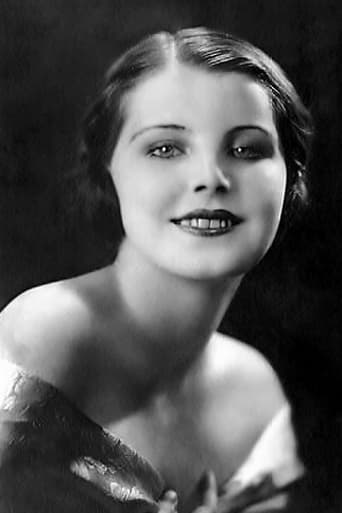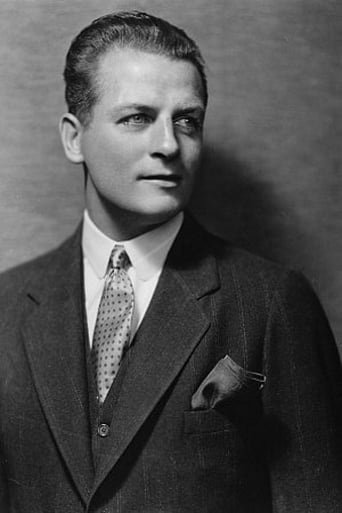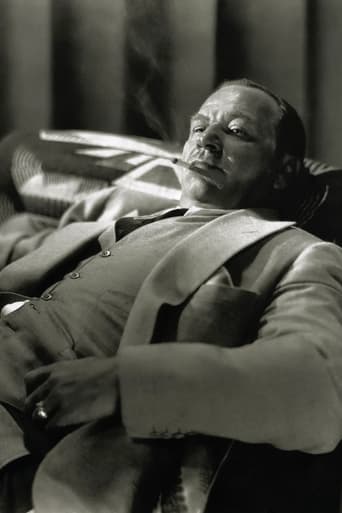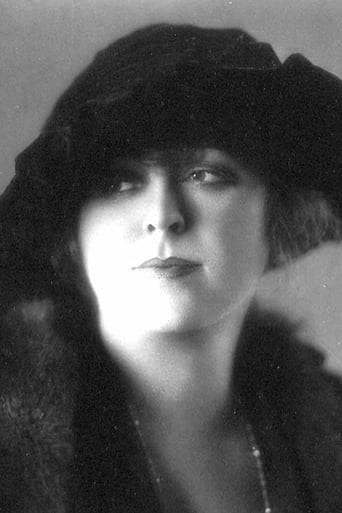Lovesusti
The Worst Film Ever
Freaktana
A Major Disappointment
Robert Joyner
The plot isn't so bad, but the pace of storytelling is too slow which makes people bored. Certain moments are so obvious and unnecessary for the main plot. I would've fast-forwarded those moments if it was an online streaming. The ending looks like implying a sequel, not sure if this movie will get one
Griff Lees
Very good movie overall, highly recommended. Most of the negative reviews don't have any merit and are all pollitically based. Give this movie a chance at least, and it might give you a different perspective.
TheLittleSongbird
Although no recordings exist of Swedish soprano Jenny Lind's, nicknamed "The Swedish Nightingale", voice, making it impossible to critique her for ourselves, she did a life interesting enough to dramatise and lend itself well to film.Lind was somewhat of a controversial artist, earning admiration from several composers such as Meyerbeer, Berlioz and Mendelssohn ('Elijah' was written with her in mind) while critics admired some aspects of her singing but found faults with others. She also suffered a vocal crisis early on due to singing heavy roles while still very young and with an untrained technique.It was interesting seeing her portrayed on film, but while the portrayal of the lady herself is difficult to find fault with apart from Barnum's involvement in boosting her career and mention of the vocal crisis (though in different circumstances) the biographical aspects are almost entirely fictionalised. 'A Lady's Morals' underwhelms as a biopic, and is uneven as a film too if not completely deserving of its initial maligning.The best things about it are the music and Grace Moore. The songs written for the film are wonderful and very tuneful, and even more so are the operatic excerpts expertly interwoven when it makes dramatic sense for their use, especially "Casta Diva" from 'Norma'. Moore charms and beguiles, while it was 'One Night of Love' that made her a star this is a very winning film debut and she sounds fabulous in songs and arias well suited to her (yes even a killer like "Casta Diva").'A Lady's Morals' looks great too, beautifully photographed with some lovely visual touches and elegant costumes and decor. Jobyna Howland is splendid too, Paul Porcasi has fun as the manager and Wallace Beery (a take or leave actor for me) makes a powerhouse brief appearance in an early role that doesn't resort to ham like some of his later performances.Couple of aspects are uneven. Sidney Franklin's direction is the main one, succeeding more visually than dramatically. There are some imaginative touches here, especially the touch the audience looking over fire flames to the snow flakes falling viewed from a window. Some of his direction is very intelligently done and he stages the songs and arias beautifully. In others, he does struggle with making the comedy believable, is too careful which makes the film lose momentum and there are scenes that are trite and belong more in a typical and overwrought early film romance, such as the scene in the meadow.Moore's leading man Reginald Denny plays some of his scenes with a debonair and charming air, but does have a tendency to go over-the-top and too often he is over-eager to the point of being somewhat creepy. The chemistry between him and Moore is sometimes sweet but at other times too overwrought.Where 'A Lady's Morals' particularly falls down is in the story, which is pure hokum and contrivance (not just by today's standards, this was even for 1930, and even for that year it felt very out of date, when you compare it to other films from that year), Lind's life was actually far more interesting than what was portrayed here, lacks momentum in the non-song/aria scenes and seems to not be sure what it wants to be. It tries to be comedy, romance and tragic drama, and only succeeds properly in the songs and operatic arias.The comedy isn't sharp enough and doesn't really belong here, the romance is hampered by Moore and Denny's chemistry not being consistently believable and painfully mundane dialogue and the tragic drama elements are just too melodramatic, over-the-top and drag the pace. The sound can be very muffled, particularly bad in the dialogue where it is not always easy at all to hear what's been said. Not that the dialogue is much to write home about in the first place.Overall, it is interesting to see Lind and her life portrayed on film, but while it is a good representation of Lind herself the film really doesn't do her story justice, just feeling too much of a story for an average at best early film made before 1930. 5/10 Bethany Cox
blanche-2
As far as I can tell, the incidents shown in this film did not happen to the real Jenny Lind, portrayed here by Grace Moore.Lind was the "Swedish Nightingale," an opera and concert performer in the 1800s who was brought to America by P.T. Barnum and madly hyped. There is no way to hear her voice today, alas, but some writings have stated that she was probably not as good as some of her contemporaries, but she was a favorite of several composers and given tons of publicity by Barnum. She apparently sang coloratura; in fact, once she sang a Rossini aria for Rossini, and it was so interpolated, when she was finished, Rossini said, "A pretty little song. Who wrote it?" In this story, Lind meets a composer (Reginald Denny) who falls for her and writes for her, eventually going blind. Fiction, as far as I can tell, as Lind married Otto Goldschmidt and had a long and successful marriage, and three children.This story is very melodramatic and, done in 1930, a lot of the acting and sound bugs hadn't been worked out yet. One thing that is true is that Lind did suffer vocal problems and a famous teacher did help restore her voice; however, her problems didn't begin while she was on stage in Norma repeating the Casta Diva (repeating arias was often done in the old days when there was a loud and long ovation).Moore sings from the above-mentioned Norma and La Fille du Regiment. What makes the film watchable is Moore's singing. She had a beautiful voice. Like a lot of the early sopranos, the top wasn't 100%; I can never figure out if it was the way they were recorded or taught. However, her debut was in Der Freischutz as Agathe, which leads me to believe she had a sizable lyric coloratura voice. However, given that these early singers sang everything, maybe not. It's not known why she retired from opera in her late twenties; it could have been that she found it too hard on her voice.Anyway, enjoy Moore's lovely singing.
bkoganbing
Grace Moore was lucky to get two cracks at Hollywood, first with MGM and later with Columbia. Harry Cohn definitely knew how to showcase her better than the material that MGM gave her.The story of Jenny Lind, the famous Swedish Nightingale of the 19th Century might have been a good choice and her real story would have been good cinematic material. The plot as presented here had nothing to do with the real Jenny Lind. The only thing that was real was the fact that P.T. Barnum brought her over to the USA for a famous tour. Barnum also marketed her in the same way a century later Hopalong Cassidy got marketed when his old films gave him renewed popularity on television. Wallace Beery played Barnum for the first time here, later on MGM would star him in a film about Barnum.The acting by Moore and her leading man Reginald Denny is way over the top. The plot is also terribly melodramatic. Denny's character as a composer who goes blind is completely fictional. In real life Jenny Lind married her accompanist and really did live happily ever after.Moore made one more film for Leo the Lion and then went back to New York and the Metropolitan Opera. Harry Cohn brought her back in 1934 when she made One Night of Love for Columbia and it was a great success. She comes across so much better there than in A Lady's Morals.Still she does have some nice arias and opera fans will tolerate the melodrama to hear them.
bkatchay
A Lady's Morals offers a good opportunity to catch Grace Moore in her brief career as well as a good, as always, early Wallace Beery. I find the performance of Gus Shy as the friend to be interesting and very focused. Mr. Shy's performance does register. Grace Moore shows that she was a relaxed performer.



